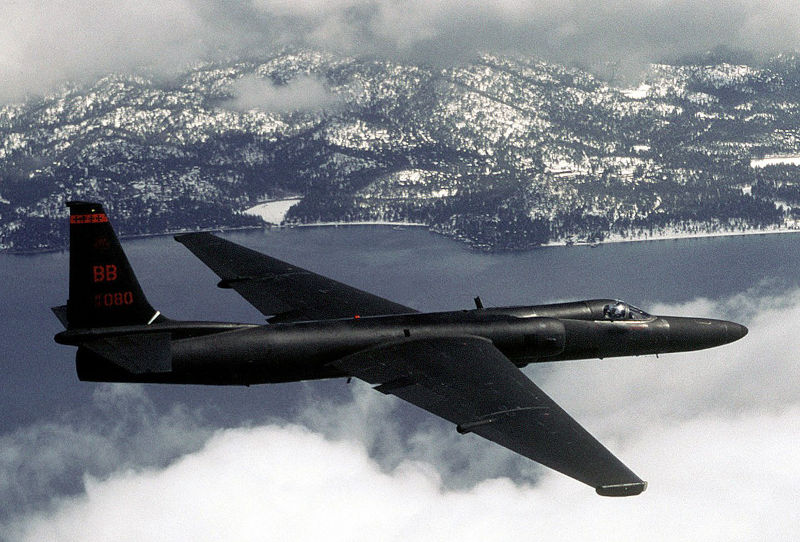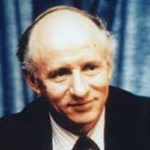When even our media of conscience lose interest in the details of emerging East West crises the results can be tragic.
We see it today over Ukraine. An early media move demanding implementation of the 2015 Minsk Accords would have prevented the bloodshed we now see. But the media were not very interested.
We are only just beginning to see the massive escalation of East-West confrontations that will result.
An even more tragic example was the media failure to follow up on the 1960 U2 incident – a failure that squashed Eisenhower-Khrushchev hopes to put an end to the Cold War. Since I was marginally involved in Moscow at the time maybe I can flesh out some of the lesser-known details.
In 1960 it was well known that after a cordial meeting between Eisenhower and Khrushchev at Camp David in September 1959, the two leaders would meet again in May that year at a Paris summit meeting for further talks on peaceful coexistence.
But on the eve of the Paris meeting all discussion was aborted when Khrushchev announced his forces had shot down a U2 spy plane over Soviet territory.
At first we had the usual US denials, but they collapsed in short order when Moscow displayed the captured pilot.
For several reasons it was clear the CIA-organised spy flight was intended to kill the Paris summit, and the emerging detente between the US and USSR that might follow.
First, was the timing of the flight – just days before the summit.
Second, the plane was above maximum height of Soviet anti-aircraft fire. This meant the downing of the plane could only have been due to a deliberate CIA action – a timed inflight explosion – to make sure a crash occurred on Soviet territory and would force the breakdown of the Paris talks (a crucial fact the Soviets foolishly managed to obscure by their boasting falsely of the height their air defence missiles could reach).
Third, the usual steps to disguise details of US pilots caught up in fatal U2 crashes were not taken. In other words the CIA hoped it would be known the dead pilot was American. (He managed to survive the crash, anyway. A Soviet diplomat later told me he was not very happy about his planned assassination at the hands of his CIA friends.)
Post-crash, Khrushchev hoped to save something from the situation by getting an apology from Eisenhower. But the apology was thwarted by State Department and other Cold War hawks in Washington.
Their usual excuses: ‘An apology would be seen as a sign of weakness before the Soviet enemy.’
Khrushchev’s failure to get the apology he wanted was to have global repercussions. It was to be used inter alia by Soviet hawks as an excuse for his overthrow in 1964.
And with the U2 event following closely on Khrushchev’s 1959 withdrawal of nuclear aid to China (he made the move claiming that otherwise it would disrupt his peace efforts with the US) it gave added fire to Beijing’s verbal attacks on a ‘peace-mongering’ Moscow.
This in turn would give our Canberra and US war-mongering hawks the excuses they needed to intervene in Vietnam, allegedly against a ‘war-mongering’ China.
In foreign affairs one bad thing can very easily lead to something much worse, as we see today over Ukraine. Our moderate media should try harder to make sure this does not happen.
In his farewell from office speech, January 1961, just after the U2 events, Eisenhower made his famous warning against the power of the military-industrial complex. But by then it was too late.
Gregory Clark was the first postwar Australian diplomat trained in Chinese, with postings to Hong Kong, Moscow and the UN before retiring in protest against the Vietnam War. After PhD studies at the ANU he became Japan correspondent for The Australian. A spell in Canberra’s Prime Ministers department led to professorships at Tokyo’s Sophia University and emeritus president of Tama University, Tokyo, before becoming co-founder of the very successful English language Akita Kokusai Daigaku. He has now retired to Latin America (Peru) and Kiwi fruit growing in Boso peninsular south of Tokyo.
His works include ‘In Fear of China’ (1969) and several books in Japan on education and foreign policy.
He used to speak Chinese and Russian with fluency. He now speaks Japanese and Spanish.

